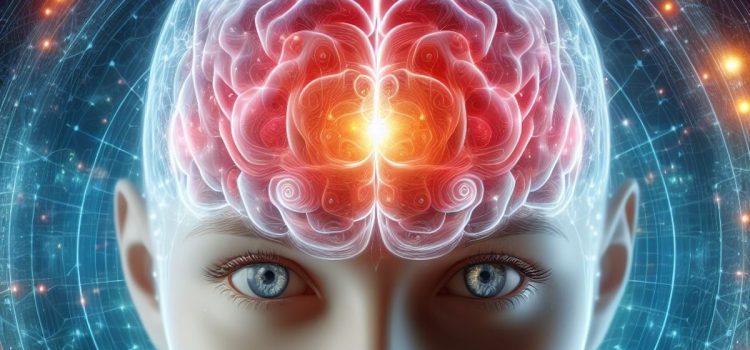
Ready to unlock your full potential and achieve your goals? Want to boost your mental toughness?
According to Dr. Andrew Huberman, the anterior mid-cingulate cortex is the part of the brain that controls willpower. On an episode of his podcast, he explained how you can not only fuel personal achievement but potentially extend your longevity.
Read more to learn about the power of the anterior mid-cingulate cortex.
The Anterior Mid-Cingulate Cortex
According to Dr. Andrew Huberman, the anterior mid-cingulate cortex (aMCC) is the brain’s control center for resolve and perseverance. He explained how tackling difficult tasks, especially when you least feel like it, strengthens the aMCC. Think of it as a workout for your willpower.
The podcast episode shed light on the aMCC, a key brain region integrating internal and external information. Pushing yourself—through exercise, new activities, or overcoming obstacles—activates the aMCC, making you more self-controlled and determined. The aMCC acts like a central hub, drawing on various cognitive functions to bolster your willpower when needed.
Fueling Your Willpower: Sleep, Nutrition, and Exercise
Lifestyle choices matter! To optimize your mental fortitude, Dr. Huberman suggested incorporating fresh forms of exercise into your routine. Stepping outside your comfort zone builds mental strength. One study even showed exercise promoting a “youthful” brain by enhancing the structure and connectivity of the anterior mid-cingulate cortex.
Learning: The Secret of “Super Agers”
Remember struggling through tough academic challenges? Dr. Huberman shared his own story, highlighting the growth spurred by overcoming difficulties. He then introduced the concept of “super agers”—individuals leading active, engaged lives and constantly facing new challenges. This continuous learning and self-challenge, Huberman argues, is key to maintaining cognitive vigor and protecting even the physical structure of the brain, including the aMCC.
Unlocking Your Potential With Huberman Lab
Ready to put these insights into action? Dive deeper with Dr. Huberman’s personalized, actionable guidelines in the podcast. He even discussed research, such as Joe Parvizi’s work at Stanford, demonstrating how stimulating the aMCC can directly boost your resolve and determination, helping you face any challenge head-on.
Context
The anterior mid-cingulate cortex is your brain’s champion for staying focused, resisting temptations, and bouncing back from challenges.
So, what exactly are these superpowers?
- Determination is your unwavering drive to achieve a goal, no matter the obstacles. Think of chasing your dream job or training for a marathon; the aMCC helps you power through.
- Self-control is your ability to say “no” to distractions and make choices that align with your long-term goals. Think of resisting that extra slice of cake or staying off social media when you need to study; the aMCC gives you the willpower.
- Resilience is your mental toughness in the face of adversity. Think of bouncing back from setbacks, dealing with difficult emotions, and emerging stronger; the aMCC helps you weather the storms.
Understanding how these traits work together through the aMCC’s magic can be empowering. It not only sheds light on human behavior but also opens doors to potential interventions, helping you enhance your mental strength and achieve greatness.
More Perspectives
While Huberman offered fascinating insights, let’s delve deeper and explore some key areas for further investigation.
Beyond the Single Hero: More Than Just the aMCC
The podcast painted the anterior mid-cingulate cortex as the sole champion of determination. But, the brain’s a complex team player, and other regions and circuits likely contribute. Remember, even our most heroic athletes need a whole support system to succeed.
Brain Activity: More Than Just On or Off
Huberman suggested strenuous activities automatically “light up” the aMCC. While there’s a connection, it’s not a simple switch. Individual differences in motivation, external support, and even your personal history all play crucial roles. It’s more like a symphony, not a single note.
Super Agers: Not Just Learning Machines
While Huberman highlights “super agers” who constantly learn and challenge themselves, there’s more to the picture. Genetics, lifestyle choices, and overall health all play a part. It’s like baking a delicious cake; you need the right ingredients and the right oven, not just one magical sprinkle.
Supporting the Claims: Evidence Matters
Huberman mentioned various cognitive functions influencing the anterior mid-cingulate cortex. But, what’s the evidence? We need to understand how these influences actually translate into willpower when you need it most. Similarly, attributing success solely to the aMCC overlooks other factors such as emotions and habits. It’s like saying your car engine is the only thing that matters for a road trip; the driver and the map are pretty important, too.
A Puzzle with Many Pieces
Don’t worry; the aMCC still has a starring role. But, we need to explore other brain regions, consider social and cultural factors, and conduct larger, more diverse studies to truly understand determination’s full story.
Preserving brain regions such as the anterior mid-cingulate cortex is promising, but it’s just one piece of the puzzle. Brain health is a complex interplay of factors, and we need more research to understand the whole picture.
So, while Huberman offers valuable insights, let’s remember it’s just the first chapter in understanding determination and self-control. By embracing diverse perspectives and rigorous research, we can unlock the true power of the brain and our own potential.
Related Reading
The Tenacious Brain: How the Anterior Mid-Cingulate Contributes to Achieving Goals
Since 1907, when the anterior division of the mid-cingulate cortex was first described, our understanding of the aMCC organization has significantly advanced.
How to Increase Your Willpower & Tenacity | Huberman Lab
You can increase tenacity and willpower by triggering the activation of the anterior mid-cingulate cortex (aMCC) region of the brain, the area that allows us to resist something we want to do or move toward something difficult.






